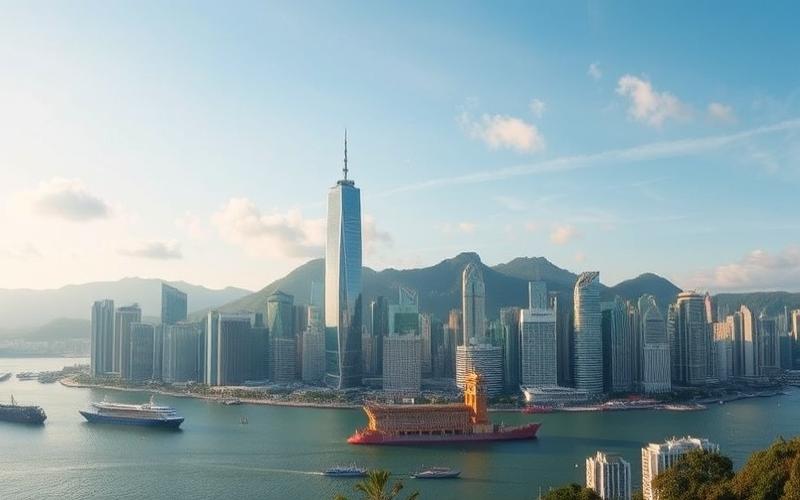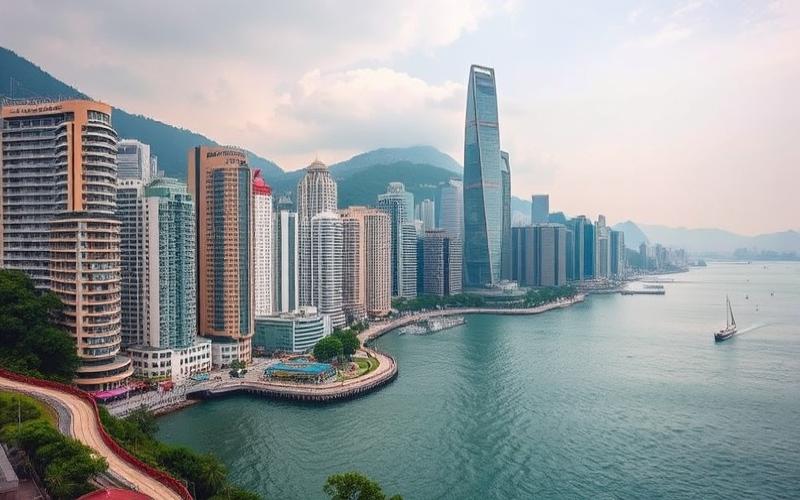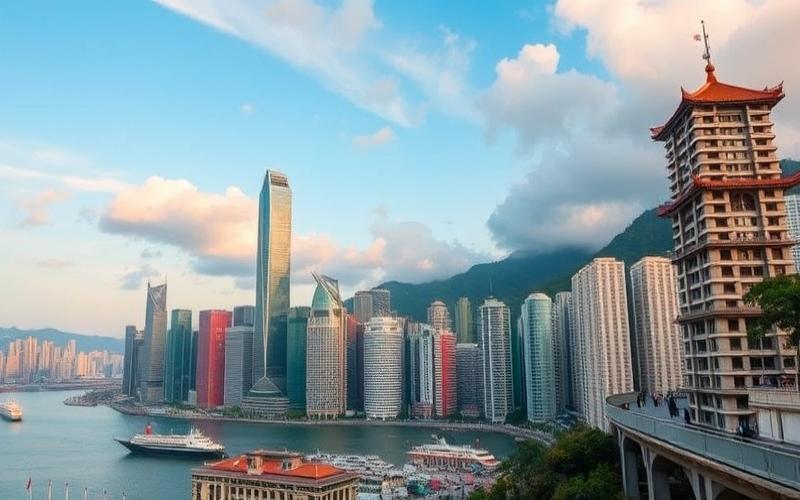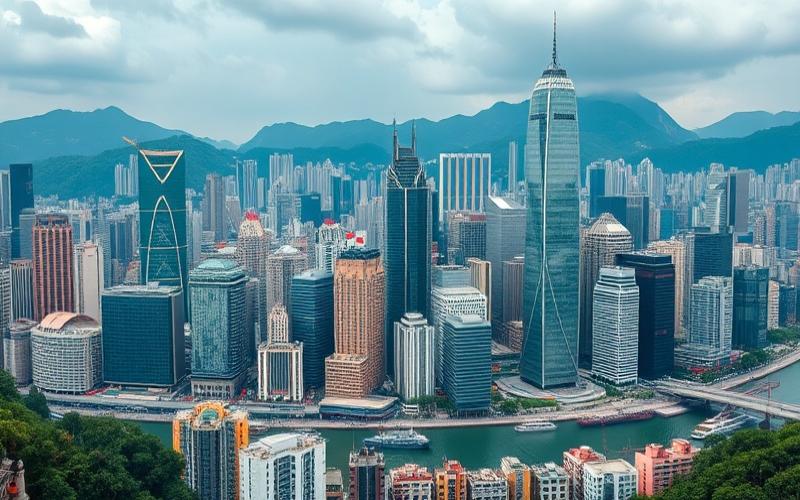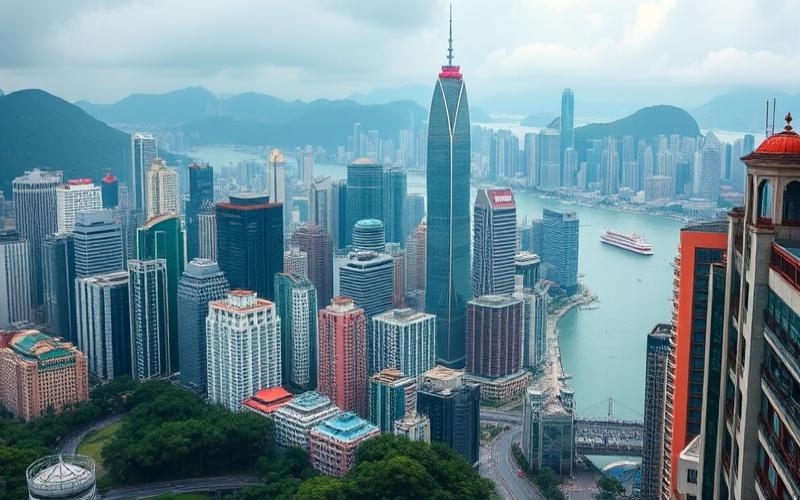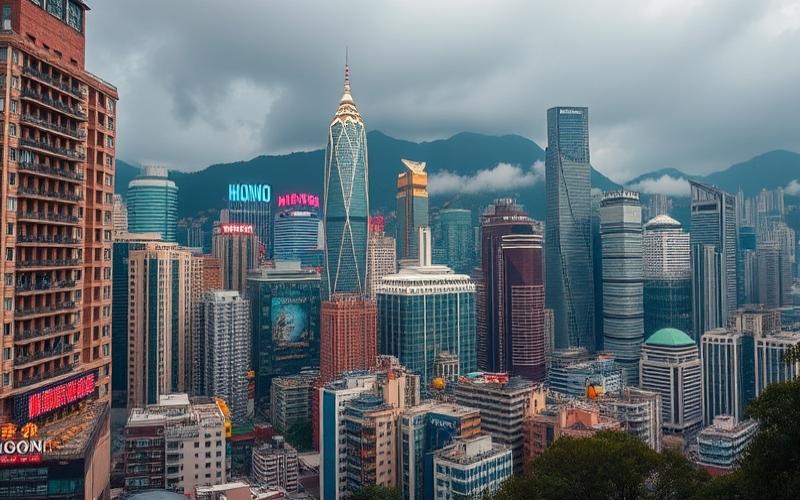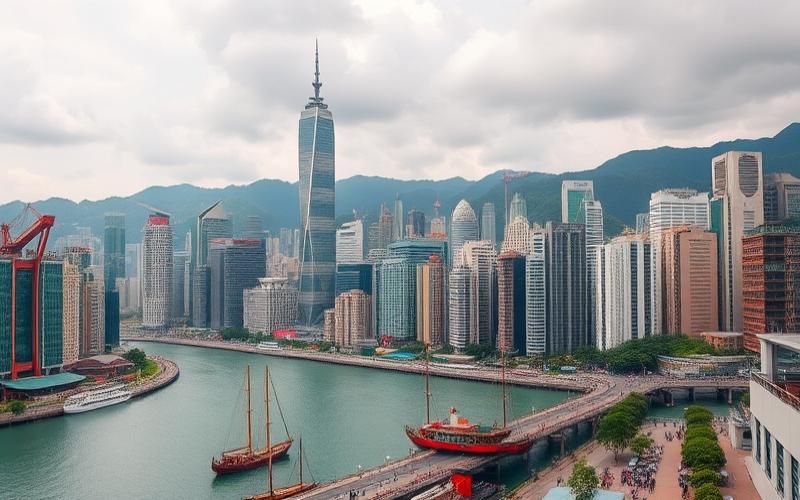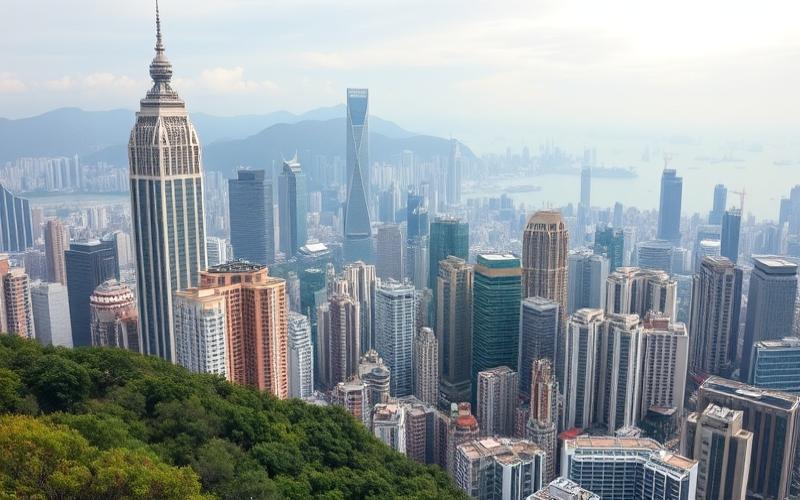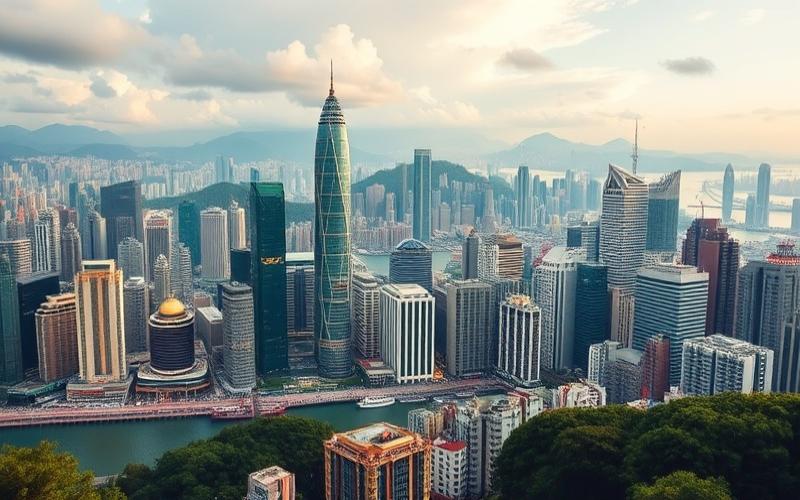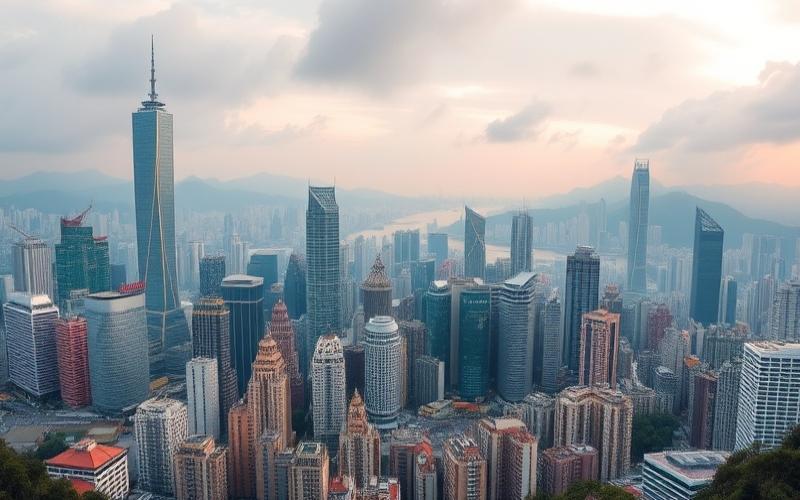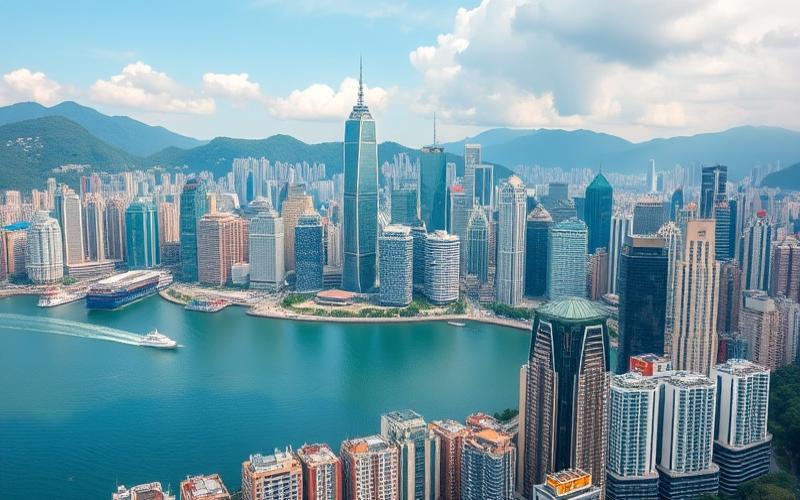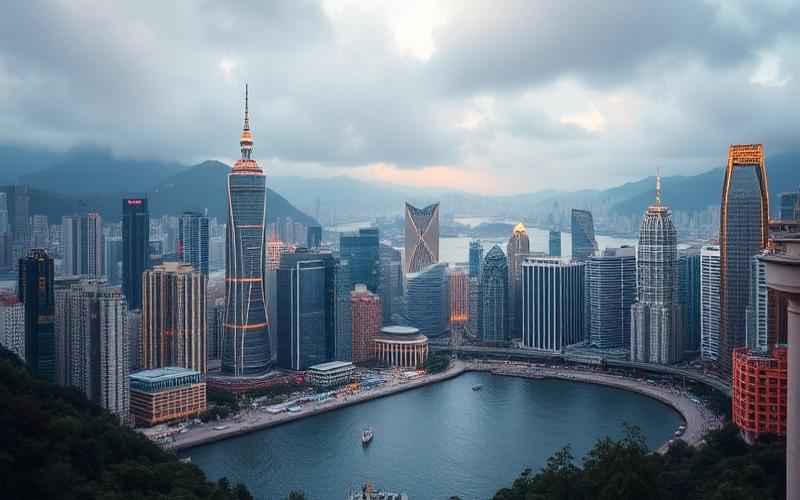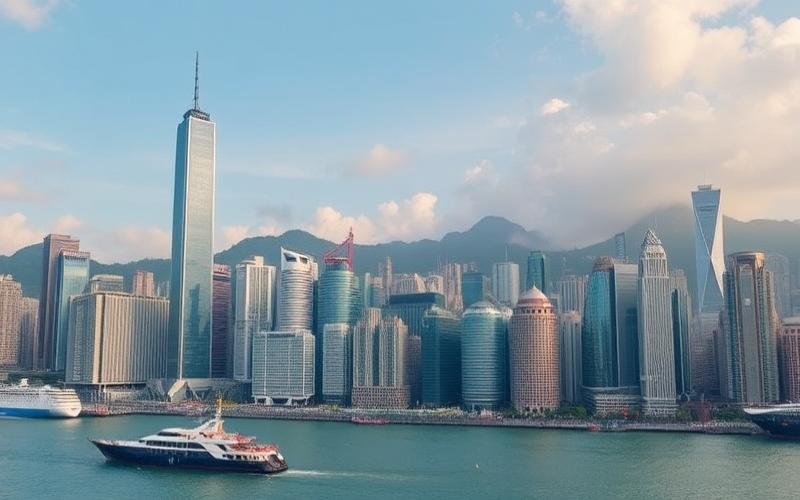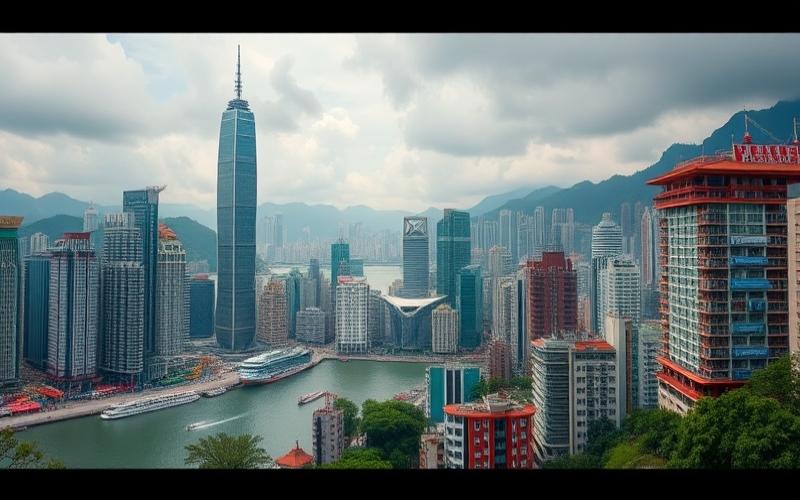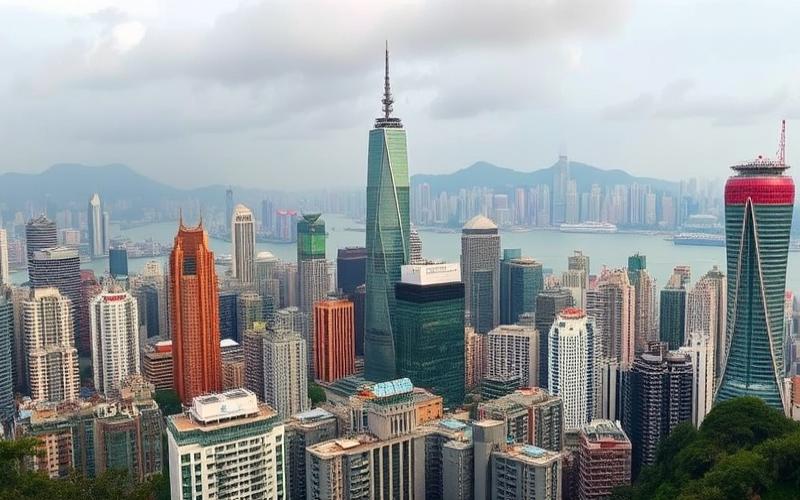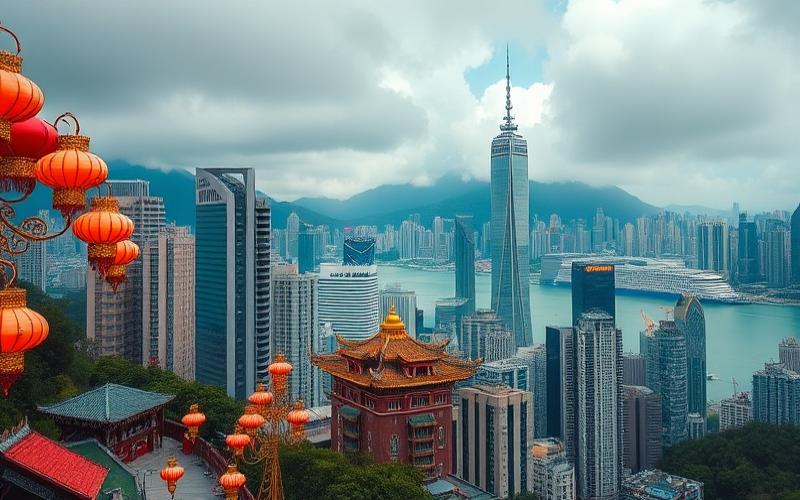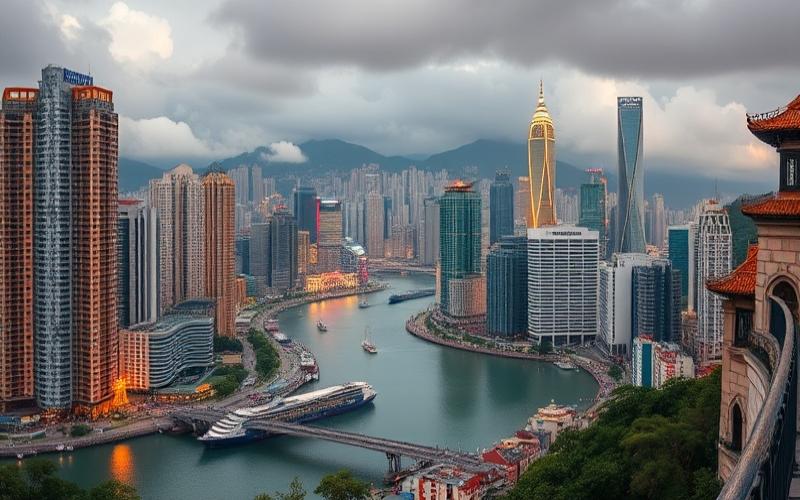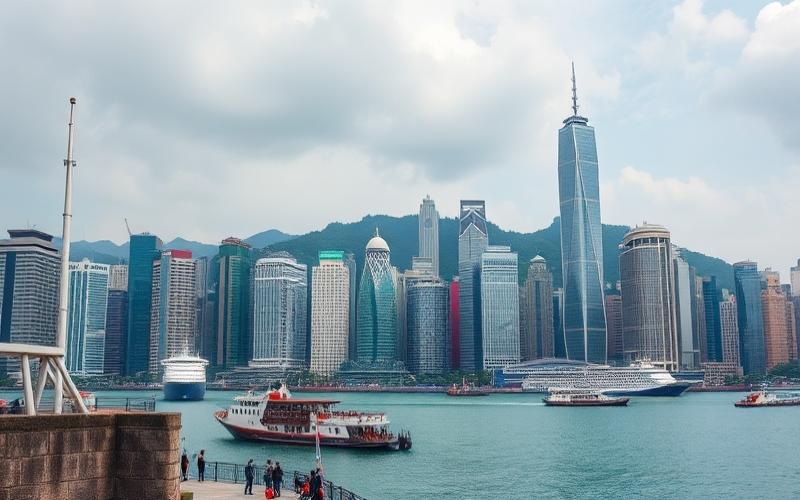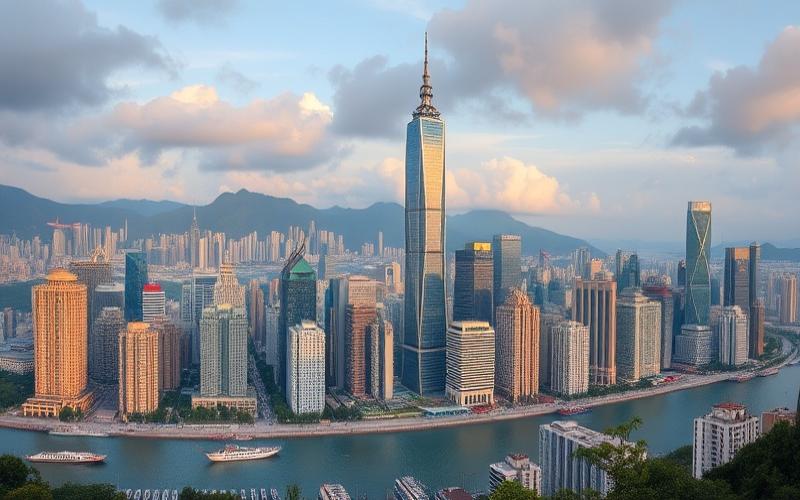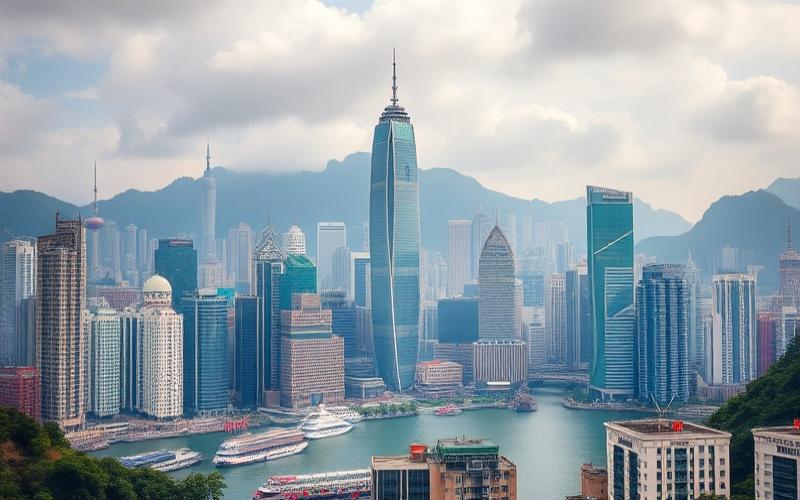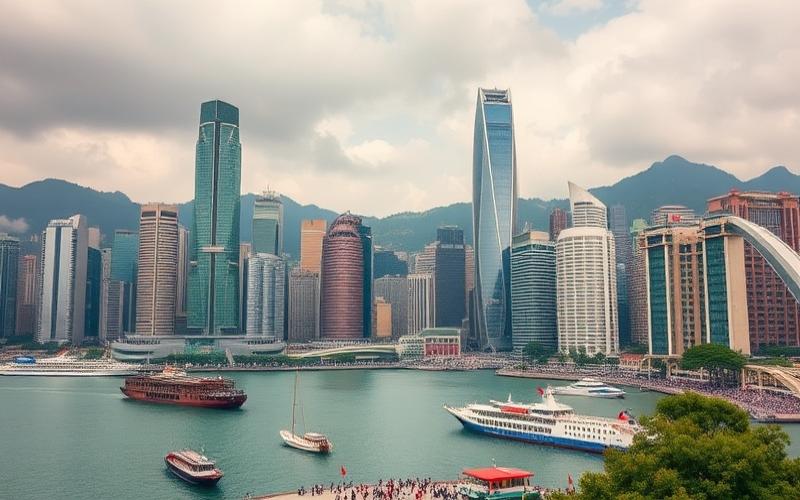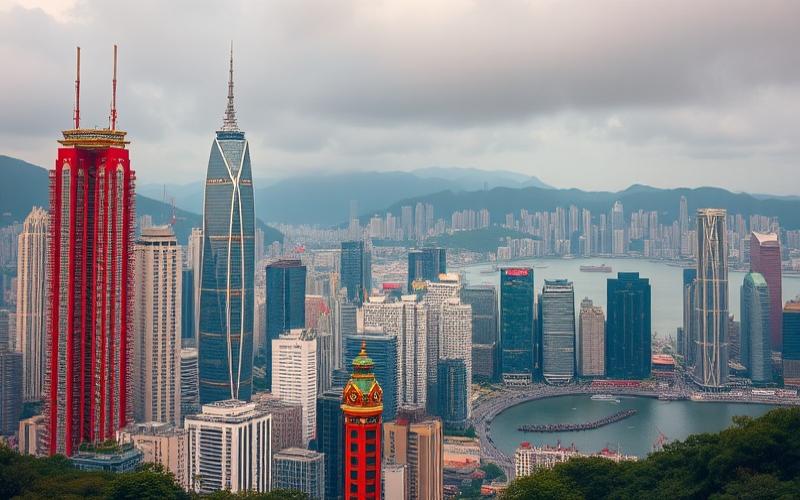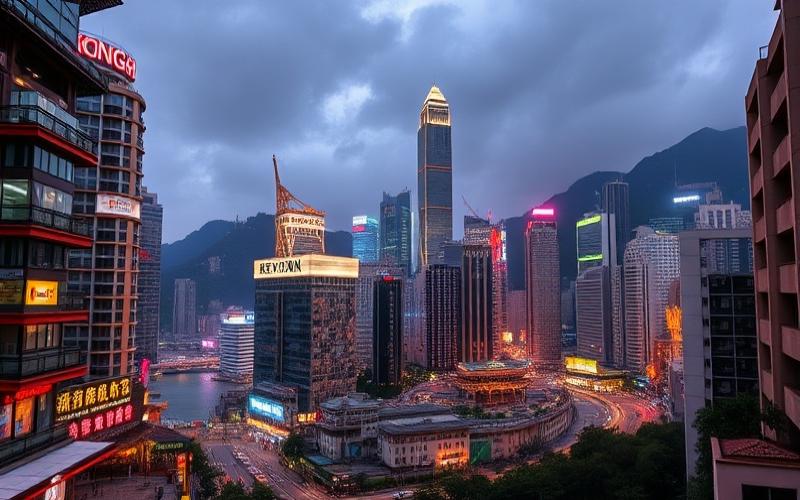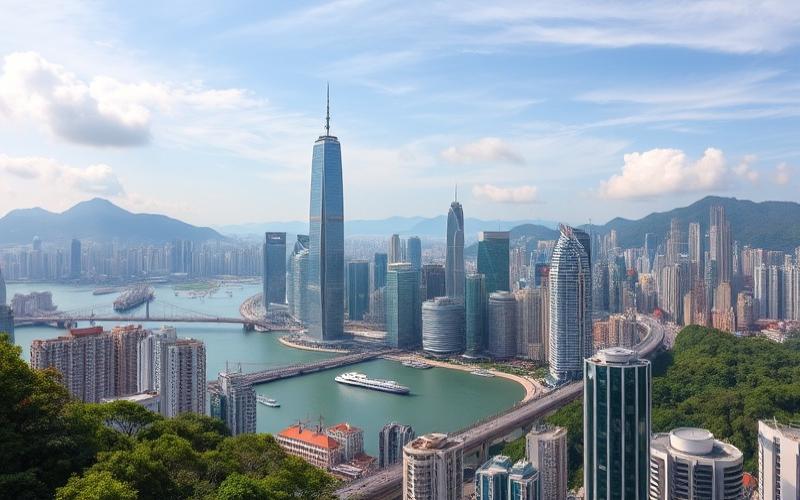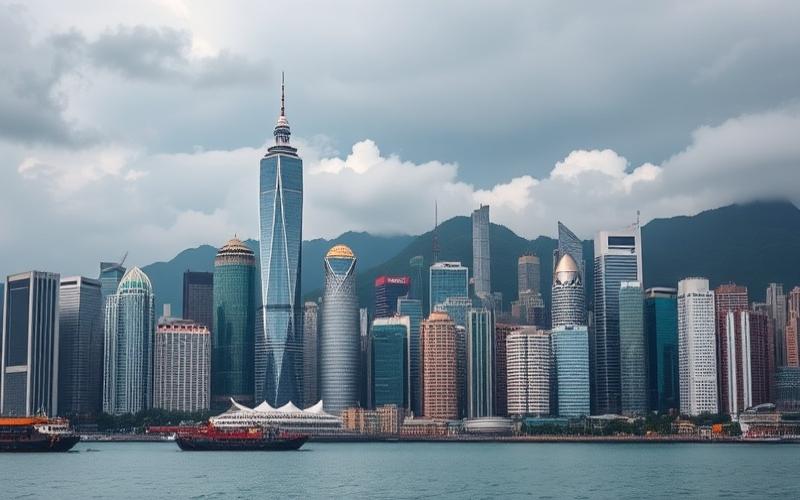
 Published on and written by Cyril Jarnias
Published on and written by Cyril Jarnias
Real Estate Investment: Hong Kong vs. Neighboring Countries
In today’s globalized economic landscape where real estate serves as a true barometer of financial stability, the decision to invest in property in Hong Kong versus its neighboring countries represents a major strategic choice for savvy investors.
Hong Kong, renowned for its skyscrapers and urban density, offers a dynamic yet saturated market where prices reach record highs. In contrast, neighboring countries like Thailand or Malaysia present a completely different investment framework, with attractive opportunities in terms of cost and growth potential.
By exploring the crucial differences between these markets, this article aims to provide investors with valuable insights to maximize their real estate investments.
Good to know:
Emerging real estate markets like Thailand or Malaysia often offer higher rental yields than Hong Kong, but with different risks to consider.
Introduction to Real Estate in the Asia-Pacific Region
The Asia-Pacific region demonstrates sustained economic growth, although slowed in 2025, with GDP growth forecasts ranging from 1.3% to 6.9% depending on the country: China (4.0%), Indonesia (4.7%), Philippines (5.3-5.4%), Vietnam (5.8-6.9%), and Thailand (1.3-3.1%). This dynamism is driven by rapid industrialization and accelerated urbanization that fuel residential and commercial real estate demand.
Impacts on the Real Estate Market:
- The rise of middle classes stimulates demand for urban housing and modern infrastructure.
- Major metropolitan skylines are evolving due to massive investments in mixed-use projects, integrating smart offices, upscale shopping centers, and connected residences.
- In several emerging countries like Vietnam or the Philippines, this dynamic translates into a sharp increase in new residential projects.
Recent Trends in Real Estate Development:
- Growing adoption of green and sustainable technologies in construction.
- Increased focus on digitalization in the sector (smart building management).
- Enhanced development of logistics spaces adapted to e-commerce.
| Country | 2025 GDP Growth (%) | Notable Real Estate Trends |
|---|---|---|
| China | 4.0 | Major mixed urban projects |
| Indonesia | 4.7 | Affordable housing expansion |
| Vietnam | 5.8 – 6.9 | Strong growth in new residential |
| Thailand | 1.3 – 2.3 | Refocus on tourism & logistics |
| Philippines | ~5.4 | Office & urban condo boom |
Factors Influencing Real Estate Decision-Makers:
- Rapid urbanization
- Access to international financing
- Relative political stability
- Public policies favoring foreign investment
- Increased regulatory pressure around sustainability
Governments play a key role through:
- Incentive policies to attract real estate FDI.
- Programs facilitating land access for foreign investors.
- Implementation of flexible yet vigilant regulatory frameworks concerning sustainable urban planning.
Regional Attractiveness for Investors
The Asia-Pacific strongly attracts due to:
- Exceptional demographic potential (several billion inhabitants).
- Faster urbanization than elsewhere in the world.
- Attractive yields compared to mature Western markets.
The region is expected to represent over half of global GDP growth by end of 2025, reinforcing its status as a preferred destination for international capital seeking geographic diversification.
Hong Kong vs. Asian Neighbors Comparison
| Criterion | Hong Kong | Singapore | Shanghai/Mainland China |
|---|---|---|---|
| Foreign Regulation | Very open | Open | More restrictive |
| Real Estate Prices | Among the highest | High | Rising |
| Market Typology | Ultra-metropolis tertiary/financial |
Hong Kong thus presents:
- A mature market dominated by high-end commercial real estate and very strong land pressure;
- Record prices driven by land scarcity;
- Unmatched openness to foreign capital compared to some neighboring markets subject to more restrictions;
- But also heightened sensitivity to global or regional economic fluctuations due to its dependence on the global financial sector.
For comparison:
- Singapore combines strict regulatory stability with targeted tax incentives;
- Major Chinese cities show strong state control over the sector while now aiming for more international investment through specialized free zones;
- Vietnam still offers progressive but controlled access to international investors with significant upside potential linked to its current rapid economic catch-up phase.
Overall attractiveness therefore relies as much on macroeconomic dynamism as on the constant adaptation of local public policies to sustainably attract both national and international private capital.
Good to know:
The Asia-Pacific region is experiencing rapid economic growth, boosting its real estate market with annual growth rates sometimes reaching 6% in major urban areas. Hong Kong stands out with some of the world’s highest real estate prices, a situation partly due to its high population density and policies limiting the supply of buildable land. In contrast, neighboring countries like Malaysia or Vietnam offer an expanding market with more affordable prices and attractive incentive policies for foreign investors. Regional decision-makers emphasize sustainable development, influencing green construction, while government policies play a crucial role, particularly in mainland China, where strict regulations govern foreign investment to stabilize the market. These differences between Hong Kong’s strong regulation and the openness of markets like Indonesia illustrate regional variabilities, offering investors a diversity of strategic options.
Taxation: Hong Kong Compared to Its Neighbors
Hong Kong presents a particularly attractive tax regime for real estate investors, significantly distinguishing itself from its Asian neighbors both in the simplicity of its taxation and the low rates of main real estate taxes.
| Jurisdiction | Capital Gains Tax | Annual Property Tax | Other Key Taxes (Purchase/Ownership) | Advantages/Barriers for Investors |
|---|---|---|---|---|
| Hong Kong | None | Moderate (15% on net rent) | Stamp duty (progressive, max 4.25% of price) | Light taxation, no capital gains tax or wealth tax, territoriality, no withholding tax on dividends/capital gains |
| China | 20% (residents/non-residents) | Varies by city (0.4%-1.2%) | Real estate VAT (5%), transfer taxes | Heavier taxation, strict regulation on foreign acquisitions |
| Japan | 15-30% (depending on holding period) | 1.4% cadastral value | Acquisition tax (3-4%), city planning tax | Progressive taxation, high transfer taxes |
| Singapore | None (except for property traders) | 0-16% depending on use/value | Buyer’s Stamp Duty (1-6%), Additional Buyer’s Stamp Duty (up to 60% for foreigners) | Heavy taxation for foreigners, legal stability |
| Taiwan | 15-45% (depending on holding period) | 1.2% cadastral value | Acquisition tax (6%), real estate transaction tax | Heavy taxation on quick resale, anti-speculation measures |
Key Points of Hong Kong’s Real Estate Tax Regime:
- No capital gains tax: Profits from property resale are not taxed, unless tax authorities consider it recurrent commercial activity.
- No withholding tax on dividends or real estate capital gains.
- Property Tax: Imposed at 15% on net rental income (rents received minus certain charges), with no other specific tax on property ownership.
- Stamp Duty: Progressive, capped at 4.25% of purchase price for individuals. Additional measures apply to non-residents or multiple purchases, but remain generally moderate compared to the region.
- Absence of wealth tax and generalized social contributions.
Comparison with Regional Neighbors:
- China: Foreign investors face restrictions, capital gains taxation (20%), variable property taxes, and real estate VAT.
- Japan: Capital gains taxation of 15-30% (depending on holding period), annual property tax and high acquisition taxes, but stable legal framework.
- Singapore: While capital gains tax remains nil for individuals, acquisition duties are very high for foreigners (up to 60% of property value), with progressive property tax.
- Taiwan: Very dissuasive system for speculation, with capital gains tax rates reaching 45% for properties held less than 2 years.
Impact on Market and International Buyers:
- Hong Kong attracts international investors through predictability, simplicity, and lightness of its real estate taxation, plus a territorial regime that limits taxation to Hong Kong-sourced income only.
- Other jurisdictions impose fiscal or regulatory barriers to limit real estate speculation and protect their domestic market, reducing appeal for international buyers, particularly in China and Singapore.
- Concrete example: A foreign investor buying an apartment in Hong Kong will pay neither capital gains tax upon resale nor excessive property taxes, whereas in Singapore they could pay up to 60% acquisition duties and in Taiwan up to 45% on quick resale.
Summary of Hong Kong’s Advantages for Real Estate Investment:
- Ultra-light taxation on capital gains and ownership
- Administrative simplicity
- Absence of many taxes present elsewhere in Asia
- Accessibility for non-residents
Ultimately, Hong Kong’s tax competitiveness remains a decisive factor in the attractiveness of its international real estate market, particularly compared to the restrictive measures of its neighbors.
Good to know:
Hong Kong offers an attractive tax environment for real estate investors due to the absence of capital gains tax for long-term investments and relatively low transfer duties, contrasting with neighbors like Singapore, which applies capital gains tax and stricter stamp duties. Taiwan also imposes tax on real estate income, while mainland China applies a real estate capital gains tax of up to 20%. In Japan, although property taxes are moderate, capital gains can be taxed up to 30% for properties held less than five years. These favorable tax policies in Hong Kong can positively influence international purchases, particularly in a real estate market already prized for its stability. The absence of capital gains tax remains a significant comparative advantage, attracting investors seeking to optimize their net returns while benefiting from a simple and predictable tax framework.
Assessment of Real Estate Purchase Costs in Different Countries
Comparative Table of Average Residential Real Estate Prices (price per square meter, main cities/regions, 2025)
| Region / City | Average Price per m² (USD) | 2024-2025 Trend | Key Factors |
| Hong Kong | ~25,000 – 28,000 | Decline of about -6% | Strong foreign and local demand, high rates, recently more flexible policies, prices down from peak but slight recent increases in some segments. |
| Beijing / Shanghai | ~8,000 – 12,000 | Slight decline or stagnation depending on city | Restrictive policies to limit speculation and favor accessibility; local economic slowdown impacting demand. |
| Tokyo | ~10,500 | Moderate growth (+2 to +4%) | Very low interest rates, strong urban attractiveness, aging population offset by return of foreign investors. |
| Seoul | ~9,500 | Decline (-3 to -5%) after recent rise | Government anti-speculation policies; previous increase due to low supply in central districts. |
| Taipei | ~8,500 | Moderate increase (+1 to +3%) | Limited supply in city center, low mortgage rates but high prices relative to local incomes. |
List of Current Trends and Major Economic Factors:
- Hong Kong
- Prices have fallen over 20% since their historical peak.
- In March 2025: annual decrease of -6.57%.
- Major relaxation of tax policies on foreign and secondary purchases (removal of Buyer’s Stamp Duty).
- Demand strongly supported by mainland Chinese buyers (24% of transaction volume).
- Forecasts for end/mid-2025: possible recovery (+3 to +5%) if rate cuts confirmed.
- Mainland China
- Major cities maintain restrictive policies to avoid real estate bubble.
- Slowdown or slight decline in some metropolises due to less favorable economic context.
- Japan
- Renewed dynamism thanks to international investors taking advantage of weak yen and rock-bottom rates.
- Stable demand despite aging domestic market.
- South Korea
- After several years of increases fueled by reduced supply within Seoul proper, correction begun with fiscal and monetary tightening.
- Taiwan
- Prices still supported by lack of quality supply in city center despite limited demographic growth.
Comparison of Accessibility & Mortgage Loan Conditions
| Region | Min. Down Payment (%) | Max Loan Term | Average Rate (%) |
| Hong Kong | 30–40% | 25–30 years | 3–4% |
| Mainland China* | 20–30% | 25–30 years | 4–5% |
| Japan | 10–20% | 35 years+ | 0.7–1.2% |
| South Korea | 20–40%* | 35 years+* | 3.0–4.2%* |
| (adjustable rates) | |||
Important Notes
In Hong Kong, the required down payment remains high with a strict loan-to-value ratio despite recent relaxations mainly targeting local first-time buyers or foreign “talented” holders. Rates remain higher than those observed in Japan thanks particularly to ultra-accommodative Japanese policies that significantly facilitate access to mortgage credit.
In mainland China as in South Korea, accessibility varies greatly depending on buyer profile, precise location, and monthly banking/fiscal quotas imposed locally to regulate the centralized urban real estate market.
In summary:
- Real estate costs remain significantly higher in Hong Kong compared to other Asian capitals;
- Accessibility is generally lower except for special cases related to new pro-foreign investor or qualified professional measures;
- Japan emerges as the market currently offering the best compromise between stability/price/low rates outside specific local requirements.
Good to know:
In Hong Kong, the cost of real estate purchase remains among the highest in the world with an average price exceeding 25,000 USD per square meter in areas like Central or Kowloon, much higher than in neighboring cities like Shanghai in mainland China where it reaches about 9,000 USD/m², or Tokyo in Japan with about 12,000 USD/m². In South Korea, Seoul offers prices around 8,500 USD/m², while in Taipei, Taiwan, costs hover around 7,000 USD/m². Market trends indicate price stagnation in Hong Kong due to strict regulation and recent economic upheavals, unlike slight increases observed in other Asian regions, partly supported by government policies favorable to real estate investment and relatively low interest rates. Regarding loan conditions, Hong Kong imposes a higher personal down payment level compared to its neighbors, making accessibility more restricted for first-time buyers, while countries like mainland China and Taiwan offer competitive mortgage loan rates, stimulating domestic demand and directly influencing price evolution.
Economic Factors Influencing the Real Estate Market
Analysis of Key Economic Factors Influencing the Real Estate Market in Hong Kong and Neighboring Countries
| Economic Factors | Hong Kong | Mainland China | Singapore |
|---|---|---|---|
| Interest Rates | Recently declining (HIBOR 3.5% over 2023-2024), easing mortgage burden and potentially supporting demand. | Still high rates but under downward pressure due to economic slowdown. | Relatively stable rates but influenced by US monetary policy, due to SGD peg to dollar. |
| Fiscal Policies | Recent removal of purchase restrictions and relaxation of down payment requirements. Specific taxes on non-resident purchases, incentives for affordable housing construction. | Restrictive policies (price controls, purchase quotas for non-residents), capital gains taxation. | High stamp duties for foreign investors, macroprudential measures to limit speculation. |
| Consumer Confidence | Low, affected by global conditions, trade tensions, and departure of skilled workers, hence weak demand. | Moderate to cautious, impacted by slowed growth and geopolitical uncertainties. | Relatively high thanks to political stability and post-pandemic economic recovery. |
| Economic Stability | Weakened by dependence on international flows, Sino-American tensions, and talent exodus. | More resilient but facing structural slowdown and debt management. | Strong stability, strict oversight, high attractiveness for international investors. |
Recent Statistics and Forecasts
- Average Prices in Hong Kong: Approximately 120,000 HKD/m² in 2023, slightly declining.
- 2025 Price Evolution: Forecasts of -5% to +5% according to agencies, with no sustained recovery expected before 2026.
- Supply and Demand: Demand weakened by departure of skilled professionals and low confidence; market nevertheless remains attractive in central and developing districts.
- Chinese Market: Demand slowdown, progressive support measures but generalized caution.
- Singapore: Resilience and faster recovery, fueled by strong foreign demand and proactive risk management.
Factors Influencing Demand and Prices
Low interest rates in Hong Kong facilitate purchases but haven’t yet revived demand, restrained by overall uncertainty and household caution.
Fiscal policies more flexible in Hong Kong but still restrictive elsewhere, directing investment flows toward more open markets.
Consumer confidence essential: low confidence in Hong Kong and China limits risk-taking, while stability in Singapore favors demand.
Impact of Global Economic Events
- COVID-19 Pandemic: caused price correction in Hong Kong, reorganization of residential priorities, and transaction slowdown.
- China-US Trade Tensions: reduced Hong Kong’s attractiveness for foreign investors and fueled volatility, particularly in luxury and investment segments.
- Talent Exodus: migration of skilled workers out of Hong Kong weighed on rental and purchase demand.
Short and Medium-Term Outlook
Southeast Asian and mainland Chinese real estate markets remain under pressure, while Hong Kong could see stabilization followed by moderate recovery from 2026, driven by new infrastructure projects and gradual return of confidence.
Monetary and fiscal policies, management of international flows, and ability to restore confidence will be decisive for future dynamics of real estate prices and demand.
Summary of Regional Dynamics:
| Region | Stability Level | Real Estate Price Trend | Current Demand |
|---|---|---|---|
| Hong Kong | Fragile | Decline or stability | Weak/cautious |
| China | Moderate | Slowdown | Moderate |
| Singapore | High | Recovery/increase | Strong |
Good to know:
Low interest rates in Hong Kong have stimulated real estate demand, although strict fiscal policies and high tax rates partially curb foreign investor momentum, contrasting with more liberal markets in mainland China and Thailand. Consumer confidence index in Hong Kong has been unstable due to the pandemic and US-China trade tensions, negatively influencing the market, while Singapore and Vietnam show stronger economic resilience. According to latest statistics, analysis reveals that Hong Kong’s GDP growth remains stagnant compared to neighboring countries, where attractive policies encourage investments. Overall, global economic events continue to disrupt forecasts in these regions, increasing real estate price volatility and buyer caution.
Disclaimer: The information provided on this website is for informational purposes only and does not constitute financial, legal, or professional advice. We encourage you to consult qualified experts before making any investment, real estate, or expatriation decisions. Although we strive to maintain up-to-date and accurate information, we do not guarantee the completeness, accuracy, or timeliness of the proposed content. As investment and expatriation involve risks, we disclaim any liability for potential losses or damages arising from the use of this site. Your use of this site confirms your acceptance of these terms and your understanding of the associated risks.

